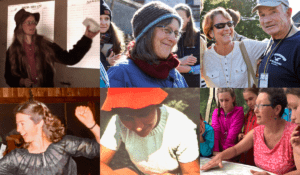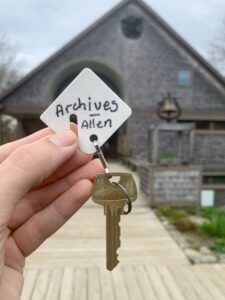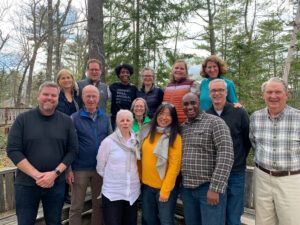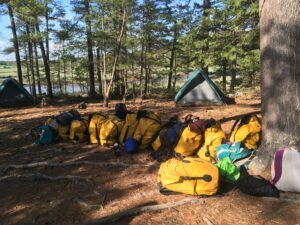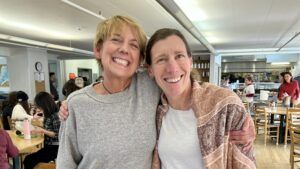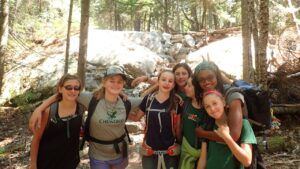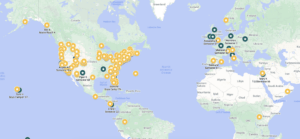“There need to be more scientists working on policy,” says Lauren Linsmayer. “We are analytical thinkers who do things in methodical ways.”
Linsmayer is an alumna of Maine Coast Semester 35 and a staff member to the United States House Science, Space, and Technology Committee. Her Ph.D. research on coral metabolism recently appeared in Scientific Reports, an open-access scientific journal published by Nature Magazine.
“All through my Ph.D. I was interested in science policy. I want to be a bridge between the scientific world and larger society,” says Linsmayer.
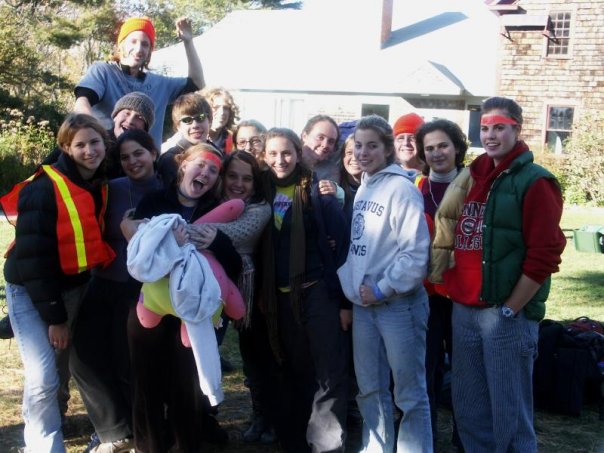
Originally from Minnesota, Linsmayer outgrew high school quickly. “Maine Coast Semester allowed me to get away without starting college early or going abroad,” she says. During her semester, she gained an appreciation for the natural world that continues to inspire her. “The seeds were always there, but Maine Coast Semester tied the threads together,” she says. “I came back forever a changed person.”
Linsmayer went on to study earth systems at Stanford University, earning both a bachelor’s and master’s of science. She began her Ph.D. work at the Scripps Institution of Oceanography in 2012. “I always wanted to save the oceans; be an ocean biologist,” says Linsmayer. “I initially started my Ph.D. really passionate about saving coral reefs and gaining a better understanding of climate change impacts on coral.”
To Linsmayer’s dismay, however, she quickly discovered that existing scientific research on basic coral biology was sparse. “We don’t know some underlying facts about coral biology and physiology,” she says. “With coral bleaching, for example, we still don’t know the exact molecular mechanism by which this happens.” Another mystery, says Linsmayer, was why some corals are more resilient to bleaching than others.
Linsmayer switched her focus to basic coral metabolism and spent the next five years studying how corals survive when deprived of oxygen, a condition known as hypoxia. She and her coauthors found that corals slip into this stressed state on a nightly basis when there is no sunlight for their symbiotic algae living in their tissues to photosynthesize.
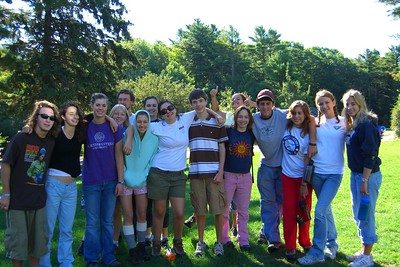
“What we found is that some corals can turn on anaerobic metabolism when oxygen is low and we discovered the molecular pathway by which they do this,” says Linsmayer. “It’s analogous to how humans make energy when our muscles are taxed.” The discovery that some corals can create energy in the absence of oxygen might help explain why some species are more resilient to bleaching than others.
During bleaching events, warm ocean waters cause corals to expel their symbiotic algae. Without algae, corals are colorless and can only make a fraction of the energy needed to survive. Linsmayer investigated the linkage between coral bleaching and anaerobic metabolism in a subsequent research study, which is in the process of being prepared for submission for publication.
“Corals are expected to experience more hypoxia in a climate-changed future,” says Linsmayer, “but if they can hang on long enough [through anaerobic energy production], they can re-intake algae when conditions are right.”
To Linsmayer, scientific research is just part of the work in terms of combating environmental change. “My paper is hard for people to understand,” she says. “There need to be more translators of science so that a study like mine can have meaning to a layperson.” Adding to this challenge is the politicization of scientific research and our current culture of misinformation.
In the last year of her Ph.D., Linsmayer was awarded a Knauss Fellowship by the National Oceanographic and Atmospheric Administration (NOAA). “That was a really special experience, similar to Maine Coast Semester, that completely changed my career and life,” she says. The program sets up graduate students in federal agencies and congressional offices for a year to gain direct policy experience.
Linsmayer moved to Washington D.C. and remained on the Hill after her fellowship ended in 2019. As a staff member on the House Science Committee, she helps draft new science legislation, shepherd bills through the political process, prepare for hearings, and meet with stakeholders – like politicians, agency representatives, and scientific groups. “I love working on ocean issues,” says Linsmayer. She recently helped pass a bill funding innovative ocean research through the National Oceanographic Partnership Program (NOPP), for example.
“There are a lot of new roles for people who can translate science in different sectors and industries, like sustainability and environmental officers,” says Linsmayer, who derives great pride from her work. “It’s been a privilege to work on issues of upholding scientific integrity and making sure federal scientists can freely research and share their findings; that federal scientists have a voice.”
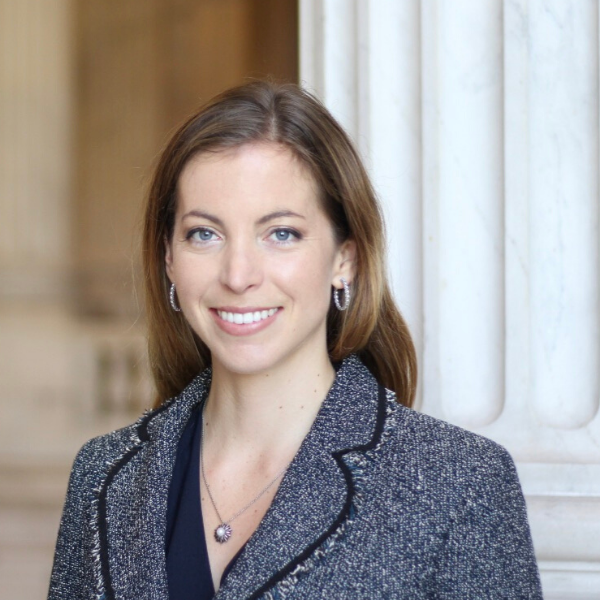
We spoke to Linsmayer for this article just one week after the insurrection at the Capitol. “Seeing my place of work desecrated and such a significant security breach was scary,” she says. “There will be repercussions on our day to day work. This is a new blow to bipartisanship.”
Still, Linsmayer feels a sense of hope. “I’m excited to see how the science policy issues that I currently work on expand and grow in this new administration. I’m hopeful there will be great progress, especially in terms of building renewed trust.”
Linsmayer thinks other scientists should consider careers in policy as well. “Think broadly about where you want to have your impact,” she says. “There’s not a linear path. Go where you’re most needed and create opportunities if they don’t exist. We’re needed in all different sectors of society.”
“The most important thing I learned at Chewonki is the importance of community. Just like corals, we’re all interconnected and part of a symbiotic network with the environment and each other,” says Linsmayer. “Find your niche.”
